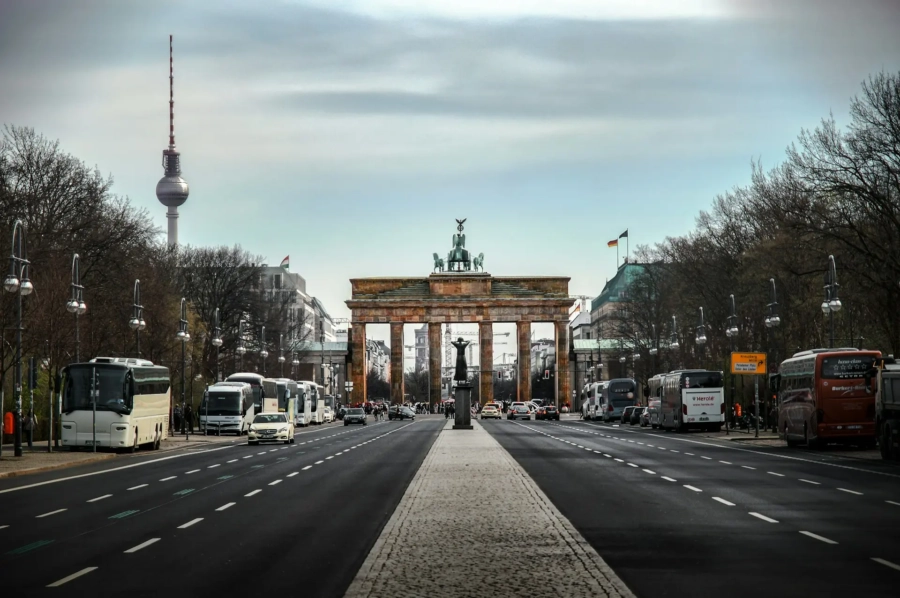



Introduction
Travel is not just a leisure activity—it’s a transformative experience. It opens up new perspectives, exposes you to different cultures, and helps you grow in unexpected ways. Whether you’re venturing across the globe or exploring hidden gems closer to home, spending time on travel can enrich your life in profound and lasting ways. In an increasingly connected but busy world, making time for travel might seem like a luxury, but it’s actually a necessity for personal development, mental well-being, and a fuller life experience. Below, we explore seven compelling reasons why you should carve out more time in your life for travel.

Discover New Cultures and Perspectives
Traveling allows you to step out of your comfort zone and immerse yourself in ways of life that may be drastically different from your own. From the customs and traditions to the languages and social norms, each place offers a unique cultural experience.
Exposure to new cultures helps broaden your understanding of the world. It challenges preconceived notions and stereotypes by showing the nuance and diversity that exist across communities. Whether you’re walking through a bustling market in Marrakech or sharing a meal with locals in a rural village in Vietnam, you learn to appreciate the depth and richness of different lifestyles.
Beyond just knowledge, cultural experiences cultivate empathy and tolerance. Understanding that people have different values, beliefs, and ways of expressing themselves leads to more compassionate worldviews. These experiences don’t just shape your interactions abroad—they influence how you engage with diverse people in your everyday life.
Improve Mental Health and Emotional Well-Being
Taking a break from the repetitive nature of daily routines can do wonders for your mental health. Travel provides a reset button—a chance to refresh your mind, reduce stress, and uplift your mood. The excitement of exploring new places, tasting different cuisines, or meeting strangers who turn into friends can significantly increase your serotonin levels.
Travel often encourages mindfulness. When you’re hiking through a quiet forest or watching the sun rise over an ancient temple, you’re more present. These moments of immersion help calm the mind and bring a sense of peace and clarity.
Moreover, planning and anticipating a trip can boost happiness. Researchers have found that people feel a surge of joy even before they leave—just from having something exciting to look forward to. The positive effects often linger even after you return, giving you a lasting sense of joy and satisfaction.
Build Confidence and Self-Reliance
One of the most underestimated benefits of traveling is the growth in personal confidence. When you navigate a foreign country, book your own accommodations, find your way around new cities, or even learn a few phrases in another language, you’re constantly solving problems on your own.
Each small achievement builds your confidence. Lost your way in a crowded city and figured out how to get back? Booked a spontaneous excursion and had the time of your life? These wins boost your belief in your own capabilities.
Traveling alone, especially, fosters self-reliance. You become your own best resource—making decisions, handling challenges, and adapting quickly. This independence often spills over into other parts of life. People who travel frequently often report feeling more capable, adaptable, and resilient in their day-to-day routines back home.
Strengthen Relationships or Create New Ones
Travel offers a chance to deepen existing relationships or build entirely new ones. Whether you’re traveling with family, friends, or a partner, shared experiences—especially in unfamiliar environments—often create stronger bonds. You learn more about each other, communicate more openly, and create memories that last a lifetime.
On the other hand, solo travel doesn’t mean you’ll be alone. On the contrary, traveling solo often opens up more opportunities to meet people from all walks of life. Hostels, local tours, community events, and even simple conversations in cafes can lead to surprising connections.
Some of the most meaningful relationships people have started during a trip abroad. These interactions give you insights into lives and perspectives you might never encounter otherwise. Sometimes, they even lead to long-lasting friendships or cross-cultural partnerships.
Learn in a Way No Classroom Can Teach
While formal education is important, there are lessons that only travel can teach. You learn to observe, adapt, and engage in a way that textbooks can’t replicate. History comes alive when you walk the streets of Rome or stand before the Great Pyramids of Giza. Geography makes more sense when you traverse mountain ranges or sail along river deltas.
Cultural etiquette, negotiation skills, and body language—these are all lessons learned through experience. Every interaction abroad is a lesson in communication, patience, and understanding.
Travel also encourages curiosity. It inspires you to ask questions, seek stories, and dig deeper into a culture’s art, politics, and people. You learn not just facts, but perspectives. It’s a form of lifelong education that continues to evolve with every destination.
Escape the Ordinary and Reignite Creativity
Routines can be comforting, but they often lead to creative stagnation. Travel disrupts that routine in the best way possible. It exposes you to new colors, sounds, architecture, styles, and philosophies—all of which can inspire fresh ideas.
Writers, artists, musicians, and entrepreneurs often cite travel as a catalyst for creative breakthroughs. A different landscape or unexpected encounter can unlock perspectives you hadn’t considered. Even just observing the way people in other countries live can shake up your usual patterns of thought.
Changing your environment is one of the most effective ways to boost creativity. When you’re removed from your familiar surroundings, your brain works harder to make sense of the new. This stimulates neural pathways that improve not only creativity but problem-solving as well.
Create a Life Full of Stories and Meaning
At the end of the day, it’s the memories and stories that shape the legacy of your life. Traveling creates those stories—the kind that are told around dinner tables, remembered in photographs, and cherished for years.
From spontaneous road trips to spiritual pilgrimages, travel memories often become defining chapters in people’s lives. They remind you of how much you’ve grown, how far you’ve come, and how beautifully diverse the world is.
Spending time on travel gives life greater depth. It allows you to say, “I was there. I saw that. I felt that.” These experiences contribute to a richer, more meaningful life narrative. When you look back years from now, it’s these stories that will stand out—not the hours spent in meetings or scrolling through your phone.
Conclusion
The world is vast, beautiful, and waiting to be explored. Making time to travel is not an escape from life, but a way to enrich it. It nurtures your mental health, sharpens your confidence, teaches invaluable life lessons, and leaves you with stories that add depth to your personal journey.
So if you’ve been wondering whether to say yes to that trip or start planning your next adventure—consider this your sign. The time spent on travel is never wasted. In fact, it might just be the most meaningful investment you can make in yourself.
Start small if you need to. Explore your own country, take weekend trips, or plan a digital detox getaway. What matters is not the distance or duration but the willingness to step into something new.
Because when you travel, you’re not just seeing new places—you’re seeing yourself differently too.


